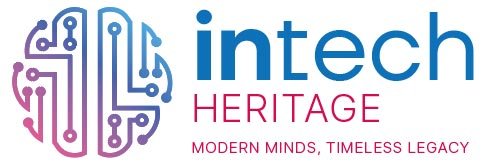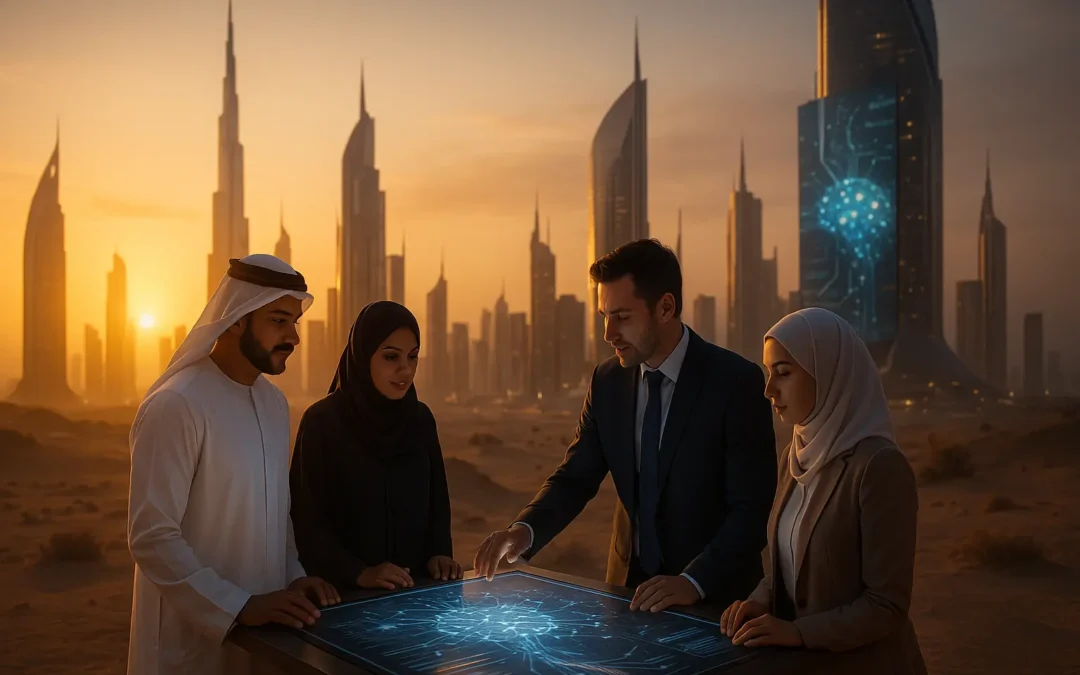The Gulf Cooperation Council (GCC) region is in the midst of a historic transformation, a paradigm shift that extends far beyond simple modernization. Driven by bold national visions, Gulf countries are actively redesigning their economies to thrive in a post-oil era. At the epicentre of this monumental transition is not a mere technological tool, but a foundational pillar that redefines what is possible: Artificial Intelligence (AI). AI is the engine that powers innovation, optimizes entire industries, and turns visionary blueprints into tangible, efficient realities.
Saudi Arabia and Vision 2030: A Data-Driven Revolution
Saudi Arabia’s Vision 2030 is, in essence, a plan to build a digital future, and AI is its most crucial component. The most visible example is NEOM, the futuristic megacity where AI will not be an add-on but its central nervous system, managing everything from autonomous mobility and clean energy grids to predictive logistics. But the influence of AI extends further. In the energy sector, giants like Aramco use AI for predictive maintenance of their infrastructure, optimizing production and safety. In finance, AI is revolutionizing digital banking and fintech solutions, while in healthcare, it is being used to develop personalized medicine models and improve hospital management.
The UAE: Leading the Charge as Global AI Pioneers
The United Arab Emirates has not only embraced AI but has positioned itself as a global leader in its strategic implementation. With the launch of its National Artificial Intelligence Strategy 2031, which aims to integrate AI at every level of government and key sectors, and the appointment of the world’s first Minister of State for AI, the UAE has demonstrated unwavering determination. Dubai has solidified its status as a vibrant innovation hub that attracts global talent and fosters the creation of cutting-edge companies. It is in this dynamic ecosystem that specialized firms like ours, Intech Heritage, are born, with the purpose of catalysing this digital transformation and helping other organizations embed artificial intelligence into their operational DNA.
Beyond Borders: A Shared Ambition Across the GCC
While Saudi Arabia and the UAE grab the headlines, the ambition to lead in AI is a shared sentiment across the entire region. Qatar, with its National AI Strategy, seeks to leverage this technology to diversify its economy and solve national challenges in health and the environment. Bahrain is fostering a tech startup ecosystem with a strong focus on AI-driven fintech, and Oman is integrating AI into its Vision 2040 to modernize its public services and logistics. This convergence of strategies shows that while each country has its own roadmap, the ultimate goal is universal: to create diversified, resilient, and knowledge-based economies.
Navigating the Future: Opportunities and Challenges
This rapid adoption of AI presents both immense opportunities and significant challenges. The greatest opportunity lies in the potential for a quantum leap in efficiency and quality of life. However, success depends on overcoming key hurdles such as the skilled talent gap, the need for robust and secure data infrastructures, and the development of ethical and regulatory frameworks to ensure the responsible use of technology. Addressing these challenges is no small task, but it is essential to fully realize the potential of AI in the region.
The Strategic Imperative of AI
In the dynamic landscape of the GCC, adopting AI has ceased to be an option and has become an unavoidable strategic imperative. Companies that integrate AI into the core of their operations will not only survive but will lead the next wave of growth and innovation. Those that lag behind risk becoming irrelevant in an economy that is advancing at an unprecedented speed.
As an AI development company based in the heart of Dubai, we at Intech Heritage help organizations navigate this transformation. How is your company leveraging AI to align with the ambitious future visions in the GCC? Share your thoughts in the comments!

